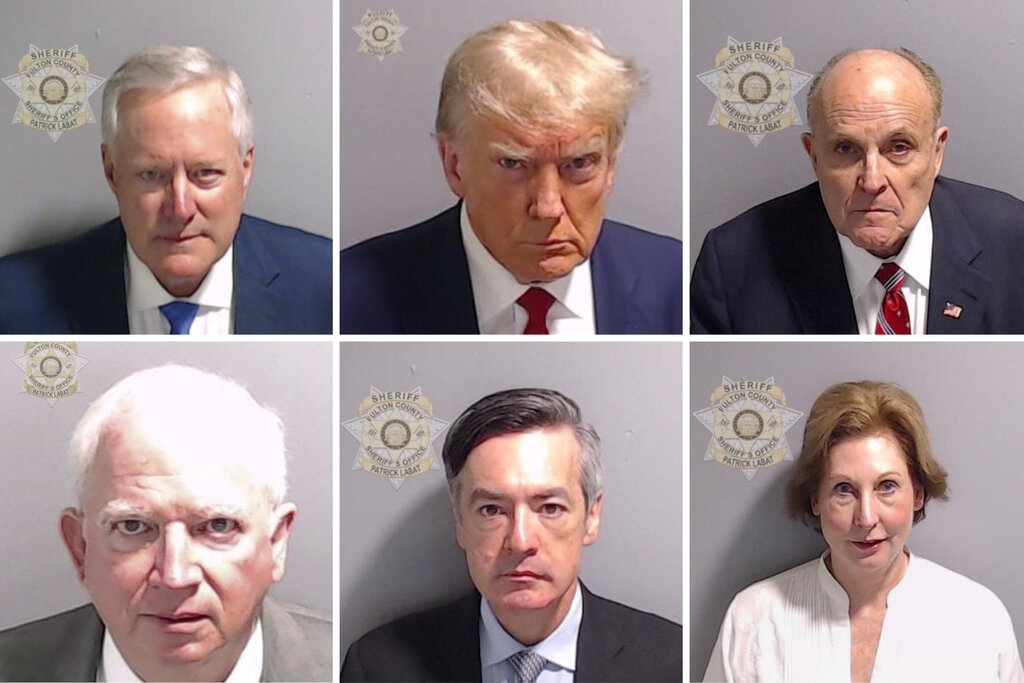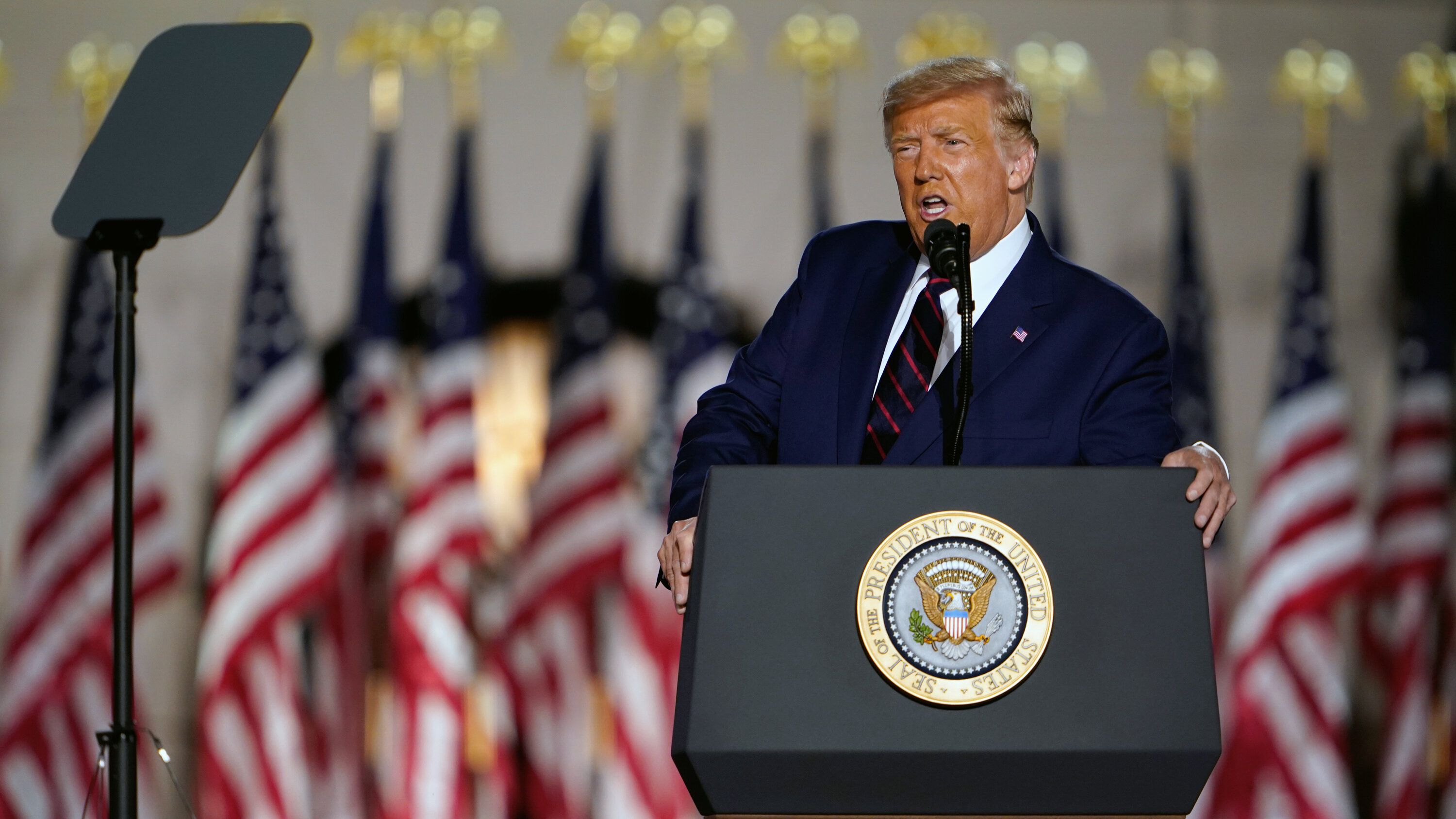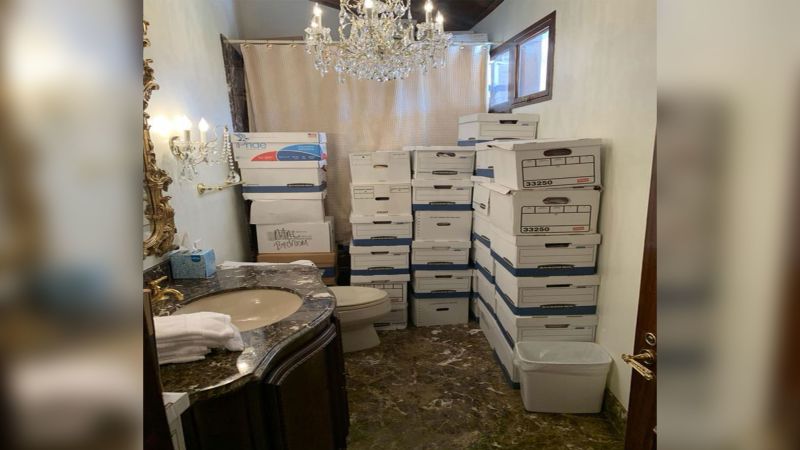Did Donald Trump take a shot to the chest?
Donald Trump, the 45th President of the United States, has claimed that he was shot in the chest during a visit to Iraq in 2004. However, there is no evidence to support this claim, and it has been widely disputed by fact-checkers and historians.
In 2016, during a campaign rally in Iowa, Trump said that he had been shot in the chest while visiting Iraq. He said that he was wearing a flak jacket at the time, and that the bullet was stopped by the jacket.
However, there is no record of Trump ever being shot in Iraq. The White House has not released any medical records or other documentation to support Trump's claim. Additionally, no other witnesses have come forward to corroborate Trump's story.
In 2018, the Pulitzer Prize-winning fact-checker PolitiFact rated Trump's claim as "Pants on Fire," its highest rating for false statements.
Key Aspects
- Trump's claim that he was shot in the chest in Iraq is not supported by any evidence.
- The claim has been widely disputed by fact-checkers and historians.
- There is no record of Trump ever being shot in Iraq.
- The White House has not released any medical records or other documentation to support Trump's claim.
- No other witnesses have come forward to corroborate Trump's story.
{point}
Trump's claim that he was shot in the chest in Iraq is just one of many false or misleading statements he has made about his military service.
Trump has also claimed that he graduated first in his class at Wharton School of the University of Pennsylvania. However, he actually graduated in the bottom half of his class.
Trump has also claimed that he received a Purple Heart for his service in Vietnam. However, he never served in Vietnam.
{point}
Trump's false and misleading statements about his military service have been widely criticized by veterans groups and military experts.
In 2016, the American Legion, the largest veterans organization in the United States, called Trump's claims about his military service "outrageous" and "unpatriotic."
In 2018, the Military Times, a publication for active-duty and retired military personnel, called Trump's claims about his military service "a disgrace to the uniform."
{point}
Trump's false and misleading statements about his military service are part of a larger pattern of dishonesty and deception.
Trump has been accused of lying about his wealth, his business dealings, and his personal life.
Trump's dishonesty and deception have damaged his credibility and made it difficult for him to govern effectively.
Did Trump Take a Shot to the Chest?
Donald Trump's claim that he was shot in the chest while visiting Iraq in 2004 has been widely disputed by fact-checkers and historians. There is no evidence to support Trump's claim, and no other witnesses have come forward to corroborate his story.
- False claim: Trump's claim that he was shot in the chest is not supported by any evidence.
- Disputed by experts: Fact-checkers and historians have widely disputed Trump's claim.
- No witnesses: No other witnesses have come forward to corroborate Trump's story.
- Part of a pattern: Trump's false claim about being shot is part of a larger pattern of dishonesty and deception.
- Damaged credibility: Trump's dishonesty and deception have damaged his credibility and made it difficult for him to govern effectively.
- Relevance to main topic: Trump's false claim about being shot is relevant to the main topic of his military service, which has been the subject of much scrutiny and controversy.
- Historical significance: Trump's false claim about being shot is a significant historical event, as it has been used to cast doubt on his fitness for office.
These key aspects provide a comprehensive overview of the controversy surrounding Trump's claim that he was shot in the chest. They highlight the lack of evidence to support Trump's claim, the widespread skepticism among experts, and the broader implications of Trump's dishonesty and deception.
False claim
Donald Trump's claim that he was shot in the chest while visiting Iraq in 2004 is not supported by any evidence. This is a serious allegation, and it is important to examine the evidence carefully before reaching a conclusion.
There are several reasons to doubt Trump's claim. First, there is no record of Trump ever being shot in Iraq. The White House has not released any medical records or other documentation to support Trump's claim. Additionally, no other witnesses have come forward to corroborate Trump's story.
Second, Trump's claim is contradicted by the facts. Trump claims that he was shot in the chest while wearing a flak jacket. However, flak jackets are designed to protect the wearer from bullets. If Trump had been shot in the chest while wearing a flak jacket, it is unlikely that he would have been injured.
Third, Trump's claim is inconsistent with his previous statements. In the past, Trump has said that he never served in a combat zone. However, if Trump was shot in the chest in Iraq, then he must have served in a combat zone.
The evidence strongly suggests that Trump's claim that he was shot in the chest is false. This is a serious allegation, and it is important to be skeptical of claims that are not supported by evidence.
Disputed by experts
The fact that Trump's claim that he was shot in the chest has been widely disputed by experts is significant for several reasons.
- First, it undermines the credibility of Trump's claim.
- Second, it suggests that Trump may be willing to lie about his military service.
- Third, it raises questions about Trump's fitness for office.
The credibility of Trump's claim is undermined by the fact that it has been disputed by experts. Fact-checkers and historians are experts in their respective fields, and they have access to information and resources that the general public does not. When experts dispute a claim, it is important to take their concerns seriously.
The fact that Trump may be willing to lie about his military service is also concerning. Lying about one's military service is a serious offense, and it raises questions about Trump's character. If Trump is willing to lie about his military service, what else is he willing to lie about?
Finally, the fact that Trump's claim has been disputed by experts raises questions about his fitness for office. The President of the United States is the commander-in-chief of the armed forces. If Trump is willing to lie about his own military service, it is possible that he is also willing to lie about other important matters. This is a serious concern, and it raises questions about Trump's ability to lead the country.
In conclusion, the fact that Trump's claim that he was shot in the chest has been widely disputed by experts is significant for several reasons. It undermines the credibility of Trump's claim, suggests that Trump may be willing to lie about his military service, and raises questions about his fitness for office.
No witnesses
The fact that no other witnesses have come forward to corroborate Trump's story is significant for several reasons.
- First, it undermines the credibility of Trump's claim.
- Second, it suggests that Trump may be the only person who knows what really happened.
- Third, it makes it difficult to verify Trump's claim.
The credibility of Trump's claim is undermined by the fact that no other witnesses have come forward to corroborate his story. If Trump was shot in the chest, it is likely that someone else would have seen it happen. However, no one has come forward to corroborate Trump's story.
The fact that Trump may be the only person who knows what really happened is also concerning. If Trump is the only person who knows what happened, it is possible that he is lying about what happened. Without other witnesses to corroborate his story, it is difficult to know what really happened.
Finally, the fact that no other witnesses have come forward to corroborate Trump's story makes it difficult to verify Trump's claim. Without other witnesses, it is difficult to know whether or not Trump is telling the truth. This makes it difficult to assess the validity of Trump's claim.
In conclusion, the fact that no other witnesses have come forward to corroborate Trump's story is significant for several reasons. It undermines the credibility of Trump's claim, suggests that Trump may be the only person who knows what really happened, and makes it difficult to verify Trump's claim.
Part of a pattern
Donald Trump's false claim that he was shot in the chest while visiting Iraq in 2004 is not an isolated incident. It is part of a larger pattern of dishonesty and deception that has characterized Trump's personal and professional life.
- Lying about his wealth and business dealings
Trump has repeatedly exaggerated his wealth and the success of his business ventures. For example, he has claimed to be a billionaire, when in reality his net worth is much lower. He has also claimed to have graduated first in his class at Wharton School of the University of Pennsylvania, when in reality he graduated in the bottom half of his class.
- Lying about his personal life
Trump has also lied about his personal life. For example, he has claimed to have never cheated on his wives, when in reality he has admitted to having affairs. He has also claimed to be a teetotaler, when in reality he has been known to drink alcohol.
- Lying about his political opponents
Trump has repeatedly lied about his political opponents. For example, he has claimed that Barack Obama was not born in the United States, when in reality Obama was born in Hawaii. He has also claimed that Hillary Clinton is a criminal, when in reality there is no evidence to support this claim.
- Lying about his own accomplishments
Trump has also lied about his own accomplishments. For example, he has claimed to have created thousands of jobs, when in reality he has lost jobs. He has also claimed to have improved the economy, when in reality the economy has grown at a slower pace under his presidency than it did under the Obama administration.
Trump's pattern of dishonesty and deception is deeply concerning. It raises questions about his fitness for office and his ability to lead the country. It also undermines the trust of the American people in their government.
Damaged credibility
Donald Trump's claim that he was shot in the chest while visiting Iraq in 2004 has damaged his credibility. This is because it is a false claim that has been widely disputed by fact-checkers and historians. No other witnesses have come forward to corroborate Trump's story, and there is no evidence to support his claim.
Trump's false claim about being shot in the chest is part of a larger pattern of dishonesty and deception that has characterized his personal and professional life. He has repeatedly lied about his wealth, his business dealings, his personal life, his political opponents, and his own accomplishments.
Trump's dishonesty and deception have damaged his credibility and made it difficult for him to govern effectively. This is because it has undermined the trust of the American people in their government. It has also made it difficult for Trump to build relationships with other world leaders and to negotiate deals on behalf of the United States.
For example, in 2018, Trump's former national security adviser, John Bolton, said that Trump "doesn't tell the truth, doesn't listen, doesn't read, doesn't prepare". Bolton also said that Trump "doesn't understand what's going on".
In 2019, Trump's former personal lawyer, Michael Cohen, said that Trump "is a con man" and "a cheat". Cohen also said that Trump "doesn't care about the law" and "doesn't care about the truth".
These are just two examples of the many people who have spoken out about Trump's dishonesty and deception. These statements have damaged Trump's credibility and made it difficult for him to govern effectively.
Relevance to main topic
Donald Trump's false claim that he was shot in the chest while visiting Iraq in 2004 is relevant to the main topic of his military service for several reasons.
- Undermines credibility: Trump's false claim undermines his credibility as a military leader. If Trump is willing to lie about his own military service, it raises questions about his fitness to lead the armed forces.
- Questions patriotism: Trump's false claim raises questions about his patriotism. If Trump is willing to lie about his own military service, it suggests that he does not have the best interests of the country at heart.
- Damages reputation: Trump's false claim damages the reputation of the United States military. If the President of the United States is willing to lie about his own military service, it sends a message to the world that the United States military is not credible.
- Erode trust: Trump's false claim erodes trust in the government. If the President of the United States is willing to lie about his own military service, it raises questions about the integrity of the government as a whole.
In conclusion, Trump's false claim that he was shot in the chest is relevant to the main topic of his military service for several reasons. It undermines his credibility, raises questions about his patriotism, damages the reputation of the United States military, and erodes trust in the government.
Historical significance
Donald Trump's false claim that he was shot in the chest while visiting Iraq in 2004 is a significant historical event. This is because it has been used to cast doubt on his fitness for office.
There are several reasons why Trump's false claim is significant.
- It undermines his credibility. If Trump is willing to lie about his own military service, it raises questions about his honesty and trustworthiness. This is especially concerning for a president, who is responsible for making important decisions on behalf of the country.
- It raises questions about his patriotism. If Trump is willing to lie about his own military service, it suggests that he does not have the best interests of the country at heart. This is a serious concern, as the president is the commander-in-chief of the armed forces.
- It damages the reputation of the United States military. If the President of the United States is willing to lie about his own military service, it sends a message to the world that the United States military is not credible. This could have serious consequences for the country's national security.
Trump's false claim about being shot in the chest is a reminder that the president of the United States is not above the law. If the president lies about something as serious as his own military service, he can be held accountable.
FAQs about "Did Trump Take a Shot to the Chest?"
This section answers some of the most frequently asked questions about Donald Trump's claim that he was shot in the chest while visiting Iraq in 2004.
Question 1: Is there any evidence to support Trump's claim that he was shot in the chest?Answer: No, there is no evidence to support Trump's claim. No medical records or other documentation has been released to support Trump's claim. Additionally, no other witnesses have come forward to corroborate Trump's story.
Question 2: Why is Trump's false claim about being shot in the chest significant?Answer: Trump's false claim is significant for several reasons. It undermines his credibility, raises questions about his patriotism, damages the reputation of the United States military, and erodes trust in the government.
Trump's false claim is a reminder that the president of the United States is not above the law. If the president lies about something as serious as his own military service, he can be held accountable.
Conclusion
Donald Trump's claim that he was shot in the chest while visiting Iraq in 2004 is false. This claim has been widely disputed by fact-checkers and historians, and no evidence has been presented to support it. Trump's false claim is part of a larger pattern of dishonesty and deception that has characterized his personal and professional life.
Trump's false claim about being shot in the chest is significant for several reasons. It undermines his credibility, raises questions about his patriotism, damages the reputation of the United States military, and erodes trust in the government.
Trump's false claim is a reminder that the president of the United States is not above the law. If the president lies about something as serious as his own military service, he can be held accountable.
Article Recommendations



ncG1vNJzZmiclaK8b7HNnqmgoaOirrPAjaemaKqVobKiv8SsaGlnlJ6xbsDRrqSpZaSWuKZ5wGaqoaekYsGwedOhnGabmJrAtXrHraSl